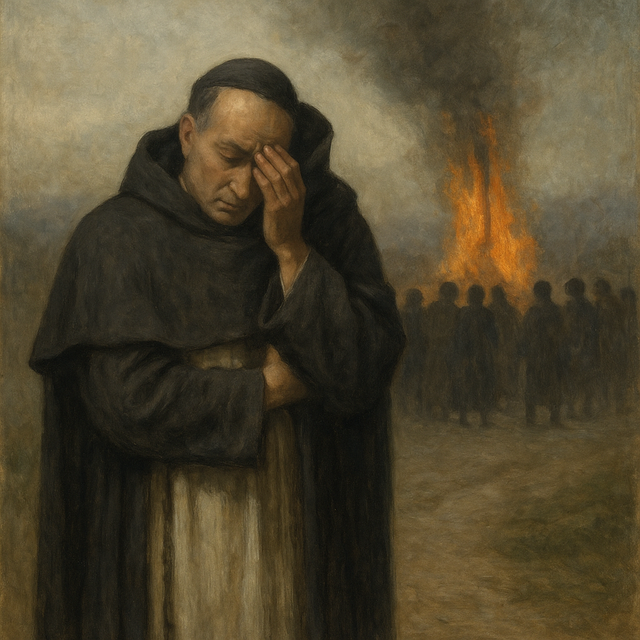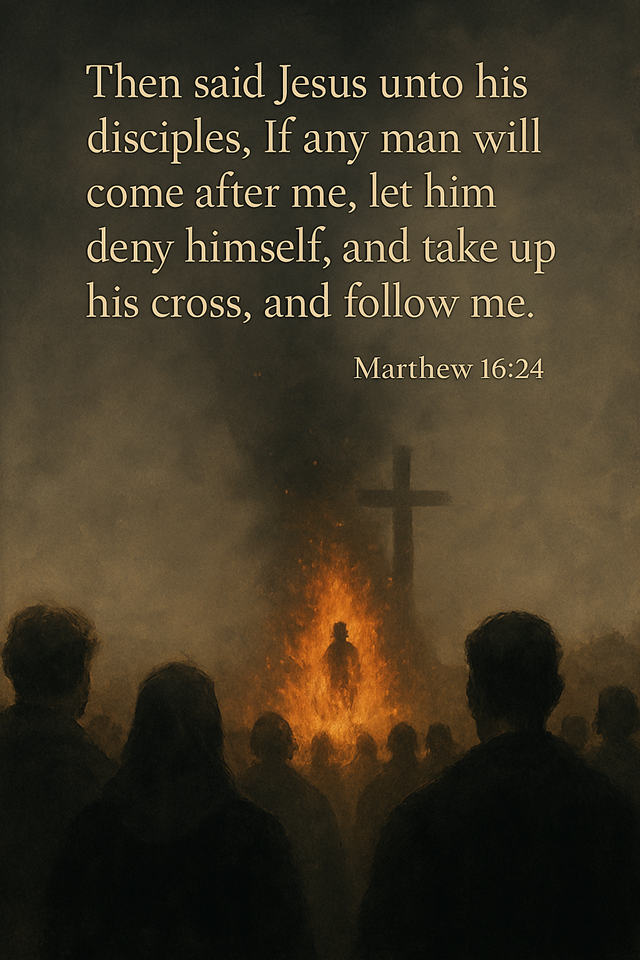This day in History April 24 1288 Troyes France 13 Jews Burned At the Stake
This Day in History: April 24, 1288 — When Truth Burned and Debt Was Erased
In Troyes, France, on April 24, 1288, thirteen Jews were burned at the stake —
accused of the ritual murder of a Christian child.
There was no real investigation.
No defense.
No truth.
A child’s body was “discovered” in the home of Isaac Châtelain during the Jewish Passover — a timing too convenient to ignore. The Franciscans and Dominicans, orders of the Roman Church, declared the Jews guilty. Thirteen were condemned and executed.
The victims’ houses, lands, and possessions were seized by the crown.
The debt was erased. The truth was buried. The fire burned anyway.
The Pattern Was Older Than France
More than a thousand years earlier, in the days of Nehemiah,
leaders in Jerusalem were mortgaging their own people, selling sons and daughters into bondage during a time of famine.
“We have mortgaged our lands, vineyards, and houses…
We bring into bondage our sons and our daughters…”
— Nehemiah 5:3,5
Nehemiah rebuked them with holy rage:
“Ought ye not to walk in the fear of our God?”
— Nehemiah 5:9
It wasn’t a race issue. It was a righteousness issue.
And the same compromise that led to Israel’s exile
now played out again in France — this time with Jews as the victims
and Rome as the oppressor.
⸻
And Rome Looked Away
The inquisitors in Troyes were not rogue agents.
They were Dominicans and Franciscans — religious orders that answered directly to the pope, not local bishops or kings.
At that time, Pope Nicholas IV reigned in Rome.
He had the authority to stop it.
But he did nothing.
He issued no bull. He condemned no injustice. He halted no flames.
“If thou forbear to deliver them that are drawn unto death,
and those that are ready to be slain;
If thou sayest, Behold, we knew it not;
doth not he that pondereth the heart consider it?”
— Proverbs 24:11–12
Rome’s silence was not ignorance.
It was complicity.
⸻
This Was Not the First Time — And It Would Not Be the Last
The Jews of Troyes, like many before them, had loaned money and held debts owed by the powerful.
Though forbidden by the Torah to charge interest to fellow Jews, they were permitted to charge interest to Gentiles — and in a society where Catholics were banned from usury, this made them both necessary and hated.
It was the perfect setup:
• Use their services
• Stir suspicion
• Plant a body
• Burn the evidence
• Seize the property
It was economic convenience dressed in religious garments —
and Rome blessed the system that enabled it.
The Lesson Is Not Ethnic — It’s Eternal
Whether it was the nobles in Nehemiah’s day…
or the inquisitors of 1288…
or modern religious empires built on the backs of widows…
The pattern remains:
• Religious systems compromise for gain
• The innocent are scapegoated
• The powerful look the other way
And God sees it all.
⸻
Let This Day Be Remembered — and Repented
Not to stir hatred, but to learn from history.
Not to target a people, but to target the spirit of Babylon —
the system that uses religion as a cloak for control,
and silence as a shield for injustice.
Because the same Rome that burned Jews in Troyes
would later burn Christians at the stake.
And today, she smiles and signs treaties — but still wears scarlet and gold.
“Come out of her, my people,
that ye be not partakers of her sins…”
— Revelation 18:4

